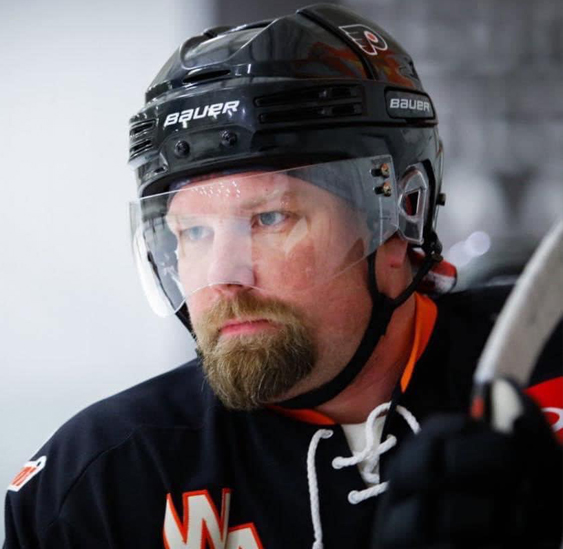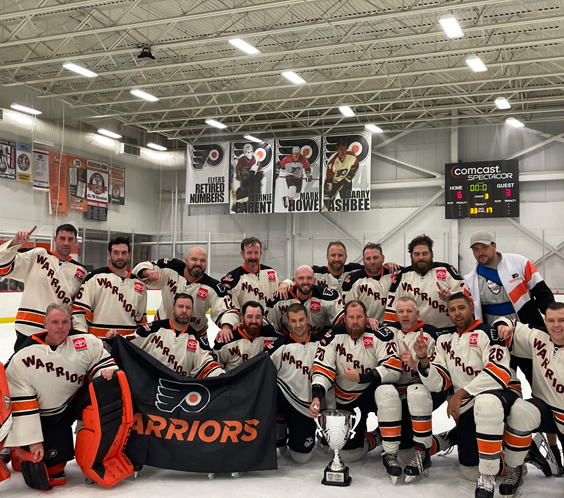From Injury to Inspiration
Robert Pomeroy does not consider himself a hero. In fact, he says he’s not even the kind of guy who needs a pat on the back. He describes himself as a veteran who is simply helping his fellow vets.
Others disagree, however, including the Mind Your Brain Foundation which recently awarded him its Community Hero Award. Through his job at the Veterans Multi-Service Center (VMC) in Philadelphia—a nonprofit that provides comprehensive services to veterans—and his community service, Rob has gone far beyond “simply helping other vets.” He is all in. That’s because he knows firsthand how difficult life after the military can be.


Rob’s story began when he was honorably discharged from the Army in 2016. He had been deployed to Iran twice and to Afghanistan once. It was in Afghanistan that he sustained two traumatic brain injuries (TBIs). When he returned home, the VA hospital did the standard evaluation. “Among other things, they put me in front of a computer and told me to follow the directions,” he says. “When I finished, they said I was fine, shook my hand and wished me good luck.”
Luck, unfortunately, wasn’t going to be enough. Rob was experiencing serious cognitive issues. He couldn’t remember words and would trip over them when he did. He sometimes couldn’t decipher what his wife was saying. “She sounded like the teacher in the Peanuts television shows,” he says. “Her voice sounded like that wah, wah, wah sound a brass instrument can make.” He felt like he didn’t fit in anywhere. Even lifelong friends seemed like strangers. His children pulled away from him, and he hopped from job to job. It was while applying for one job that he finally reached his breaking point. He couldn’t remember how to write his name. He tapped his pen for a few minutes, hoping it would come to him. It didn’t. He left the application on the table and walked out. “I became deeply depressed,” he says. “I tried to commit suicide three times.”
Rob’s wife, Yanelle, a medical assistant, finally took matters in her own hands. She found a physician who specializes in the treatment of vets with TBIs. The doctor found that Rob has scar tissue on his brain from behind his right eye to the back of his head. He finally had a diagnosis after six years, and with it the validation that he wasn’t “fine” and needed help.
He started the long hard journey to recovery, which took all the determination and stamina he could muster. So grateful to those who motivated and helped him, Rob vowed to always give back. His job at VMC, under the SSG Suicide Prevention program, involves helping vets get whatever counseling, treatment or support they need. “I love my job,” he says. “I love that I can help people with problems like I had. Vets rely on each other, just like on the battlefield.”
In addition to his job, Rob has been active in the VFW for 14 years and is currently the Senior Vice Commander. He also belongs to the Philadelphia Warrior Ice Hockey Club, a tier-three club for disabled veterans. Perhaps most importantly, however, Rob is a constant presence in the community. He speaks at events for TBI victims whenever he’s asked and is always there for vets in crisis. “Not everyone has a significant other to support them,” he says. “I’ll do whatever it takes to be there.” He recalls getting on a plane and landing in California just seven hours after a friend in crisis called him. “I’ve already lost too many friends from the military to suicide,” he says. “I didn’t want one more vet to die.”
Rob may soon do his part in helping vets in Ukraine. He is currently talking to the government there about a possible visit to help establish programs for their disabled veterans. “My motto is based on something the late comedian Robin Williams once said,” Rob explains. “He said he tries to make others smile, so they don’t feel the same pain he did. That’s exactly what I always try to do.”

